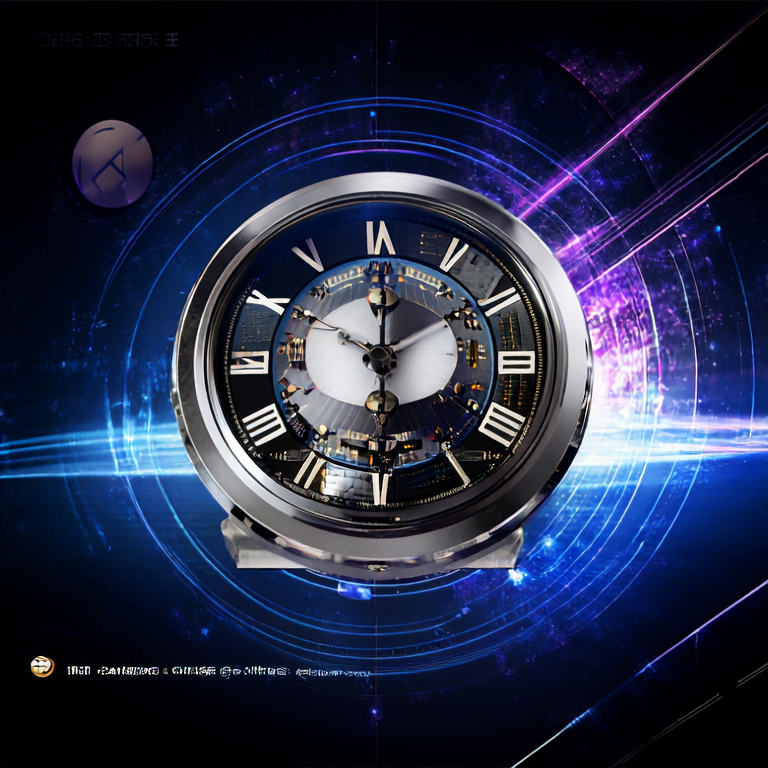
 EN
EN
In the fast-paced world of technology, precision timing is crucial for a wide array of applications, especially in GPS and satellite navigation systems. atomic clocks have emerged as a game-changing innovation, offering unprecedented accuracy and reliability. The efficacy of atomic clocks resolves pain points associated with traditional timekeeping methods, which often fall short in critical scenarios, like aviation, telecommunications, and space exploration. This article will delve into the essential role atomic clocks play in these industries, highlighting the importance of accurate timekeeping in modern applications and the latest advancements shaping the future.

Atomic clocks are timekeeping devices that use the vibrations of atoms to measure time with extreme accuracy, achieving precision levels on the order of 10^-18 seconds. The most common type of atomic clock utilizes cesium or rubidium atoms as a reference. Each oscillation of these atoms results in a frequency of 9,192,631,770 Hz for cesium, which is the basis for defining the second in the International System of Units (SI).
The term "atomic clock" itself signifies precision that extends beyond conventional quartz clocks, which can only achieve accuracies within seconds every few years. In contrast, atomic clocks possess a precision that allows them to lose less than a second in millions of years, underscoring their importance in applications where every nanosecond counts.
Atomic clocks are indispensable in various fields, including:
Global Positioning System (GPS): GPS satellites rely on synchronized atomic clocks to provide accurate positioning data to users on Earth. Each satellite broadcasts its position along with the time of transmission, enabling receivers to calculate their exact location through triangulation.
Telecommunications: Cellular networks utilize atomic clocks to manage data transmission timing between devices and cell towers. This synchronization is essential to maintain call quality and prevent dropped connections.
Financial markets: In high-frequency trading, even microseconds can make a difference. Atomic clocks ensure that trades are executed with precision timing, thus maintaining fairness in competitive trading environments.
Scientific research and experimentation: Atomic clocks play a crucial role in experiments needing precise time intervals, such as those measuring the effects of gravity on time.
The significance of atomic clocks cannot be overstated in modern technology. Here are several critical advantages:
Unmatched Accuracy: Atomic clocks are the most accurate timekeeping devices available today. Studies from sources like the National Institute of Standards and Technology (NIST) indicate that atomic clocks can provide stability at a frequency of parts in 10^16, making them vital for applications requiring extreme timing precision.
Reliability: Unlike traditional timekeeping methods, atomic clocks are less susceptible to environmental factors such as temperature fluctuating, pressure changes, and magnetic fields. Their reliability is crucial for systems that operate in space or fluctuating environments.
Wide Application Range: The versatility of atomic clocks makes them essential across numerous fields, ensuring that industries and services can operate seamlessly with continued advancements in technology.
To gain a deeper understanding of atomic clocks and their functionalities, consider reviewing detailed user guides or technical reports provided by reputable organizations like the International Bureau of Weights and Measures (BIPM) or the National Aeronautics and Space Administration (NASA). Moreover, engaging with interactive resources can enhance comprehension of the intricate role atomic clocks play in day-to-day operations, particularly in navigation and telecommunications.
Q1: How does an atomic clock compare to a traditional quartz clock?
A1: Atomic clocks are vastly more accurate than quartz clocks. While quartz clocks can gain or lose seconds over years, atomic clocks can remain accurate over millions of years.
Q2: Are atomic clocks expensive?
A2: Yes, atomic clocks can be costly; prices can range from tens of thousands to millions of dollars. However, their value is evident in applications where precise timing is crucial.
Q3: Can atomic clocks be found outside of scientific labs?
A3: Yes, many navigation systems, smartphones, and even consumer electronics rely on the technology and principles derived from atomic clock systems.
For those interested in diving deeper into the world of atomic clocks, we recommend checking out the offerings from California Triangle, a leading brand specializing in advanced timing technologies that integrate atomic clock principles into their products. By understanding their functionalities firsthand, users can appreciate how atomic clocks revolutionize modern applications.
In summary, atomic clocks are an integral part of our technological landscape, providing essential timing solutions for GPS, telecommunications, and many other fields. Their unmatched accuracy, reliability, and wide range of applications ensure that they will continue to play a crucial role in the evolving tech world.
Latest News